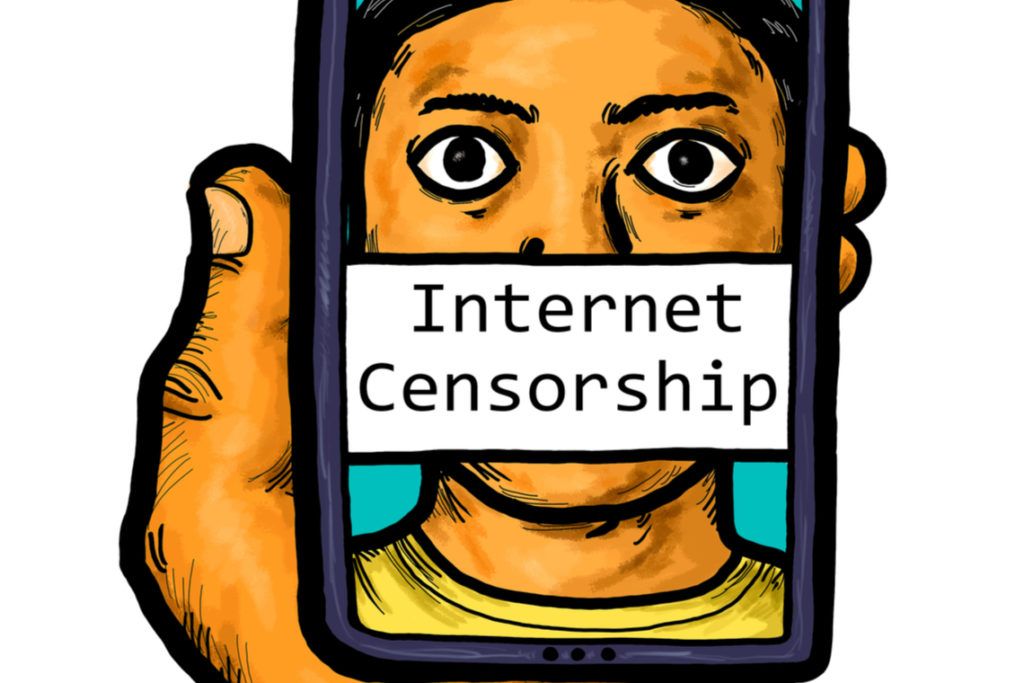The internet today by most metrics is more divided than its ever been. State entities have been outright banning websites and limiting internet access. The World Wide Web as we once knew it is becoming a web of ‘national’ internets and limited cross-communication.
Long ago, it was considered likely that any censorship online would find an inevitable workaround. This is what digital pioneer John Gilmore told Time magazine back in 1993. However, by all accounts, things have been changing for the worse in the past few years.
Earlier this month, Mozilla released its ‘Internet Health Report’ which concluded that the state of the internet was, at best, ‘complicated.’ Overall, the conclusion was mostly pessimistic. Last year alone, there were 188 internet shutdowns by state governments.
The world has been pulling the internet in the opposite direction of how it was originally intended. We are heading towards a world of digitized surveillance, state control of information, and monopolizing digital platforms.

Internet Turning ‘Splinternet’
The term ‘splinternet’ has been around since the 1990s, but at no time has it been more apt of a term than today. Governments globally have been fencing off segments of the World Wide Web to curate what their citizens see and share. As companies operate within the bounds of their own censorship, sometimes working with state powers, it’s starting to feel as though the internet is becoming much smaller. This is remarkable for a few reasons — after all, internet accessibility is exploding. As of April 2019 around 56.1 percent of the world’s population is online. Just think that in 2012, this number was only 34 percent. So, wouldn’t such an explosive onboarding of new digital users make our internet feel more rich and vast? Instead, quite the opposite has happened. As Venkat Balasubramani, founder of a Seatle-based cyberlaw firm told Fortune magazine, ‘It feels like a chunk of the Internet is gone or different.’ That’s not just a feeling though, it’s true. In Russia, the Duma passed its ‘Internet Sovereignty’ law last month which gave the state formal powers to dictate what should be seen online and China has similar mechanisms in place through its so-called ‘Great Firewall.’ There are countless more examples throughout the world. The World Wide Web, as we once knew it, is becoming a collection of national internets.
A Decentralized Internet Is Possible
There have already been multiple examples of citizens using existing public blockchains to avoid censorship and protect information. Take, for example, a case in China where authorities banned a student’s letter outlining the cover-up of a sexual assault case in Peking University which led to a student’s suicide. It was later posted on the Ethereum blockchain where it was stored forever, never to be erased, leading to mass coverage of the story. However, it’s not only about leveraging current public ledgers to protect oneself from censors. The promise of trustless, blockchain-based networks lies in the fact that they are an alternative to centralized power. The technology takes the power out of the hands of the state and any centralized entity and makes information immutable and forever preserved. In short, building decentralized alternatives is our best weapon against the ‘splinternet.’ By connecting disparate blockchain-based networks into one global system, we can finally realize the dream of making a true World Wide Web. Do you believe the internet is shrinking and splintering? Can blockchain technology help us stop this worrying trend? Let us know your thoughts in the comments below.
Top crypto platforms in the US
Disclaimer
In adherence to the Trust Project guidelines, BeInCrypto is committed to unbiased, transparent reporting. This news article aims to provide accurate, timely information. However, readers are advised to verify facts independently and consult with a professional before making any decisions based on this content. Please note that our Terms and Conditions, Privacy Policy, and Disclaimers have been updated.

Advertorial
Advertorial is the universal author name for all the sponsored content provided by BeInCrypto partners. Therefore, these articles, created by third parties for promotional purposes, may not align with BeInCrypto views or opinion. Although we make efforts to verify the credibility of featured projects, these pieces are intended for advertising and should not be regarded as financial advice. Readers are encouraged to conduct independent research (DYOR) and exercise caution. Decisions based on...
Advertorial is the universal author name for all the sponsored content provided by BeInCrypto partners. Therefore, these articles, created by third parties for promotional purposes, may not align with BeInCrypto views or opinion. Although we make efforts to verify the credibility of featured projects, these pieces are intended for advertising and should not be regarded as financial advice. Readers are encouraged to conduct independent research (DYOR) and exercise caution. Decisions based on...
READ FULL BIO
Sponsored
Sponsored
